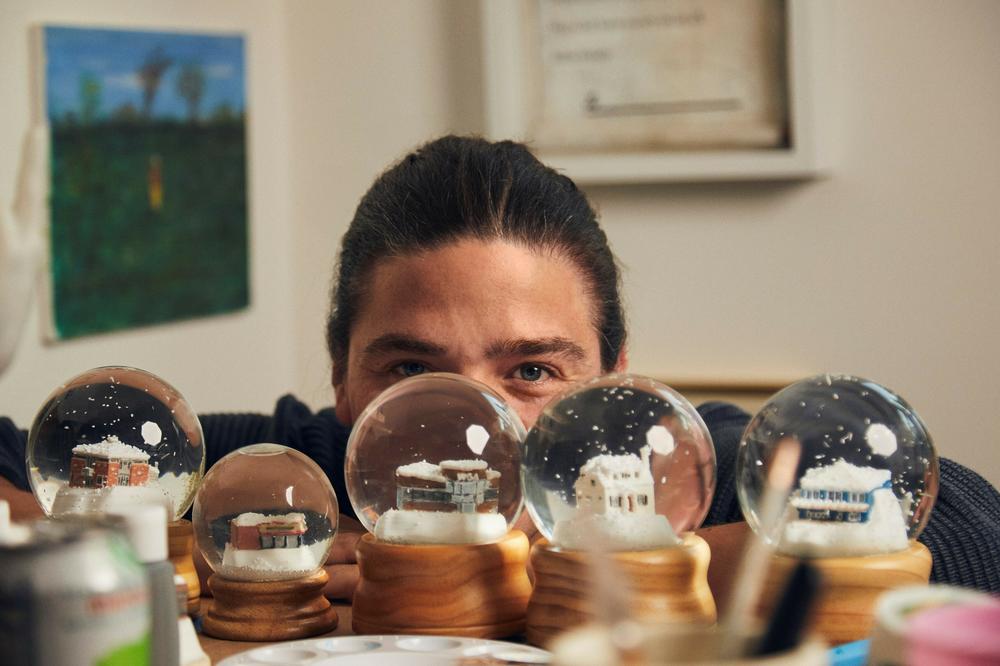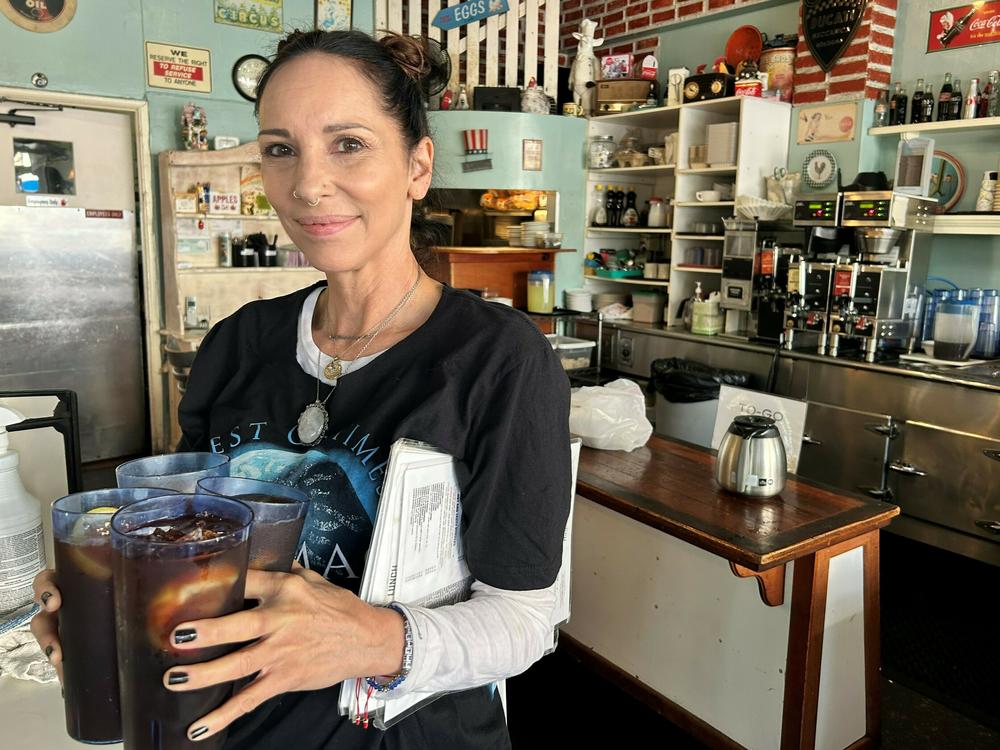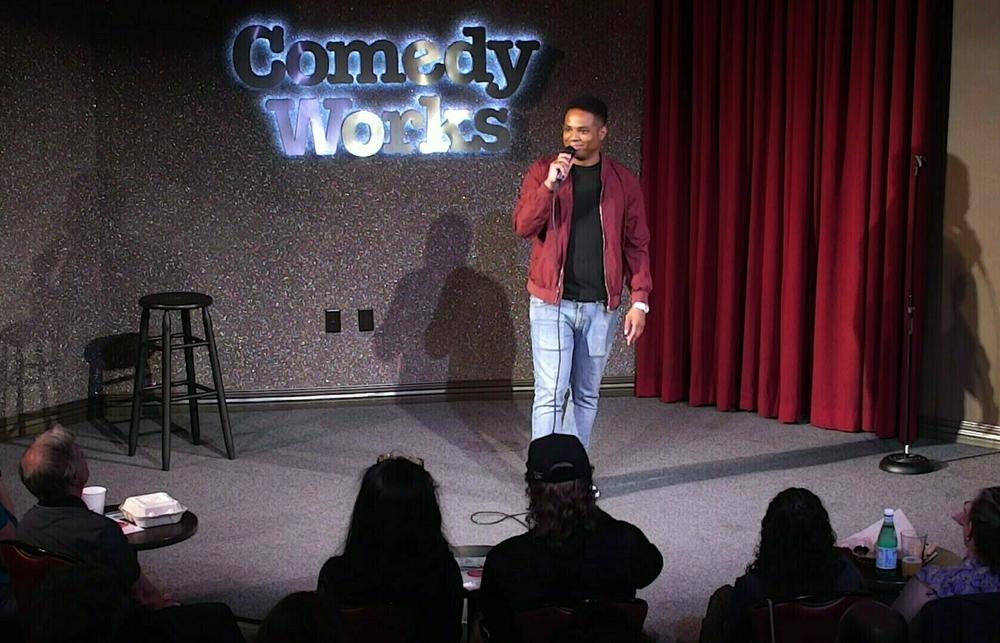Section Branding
Header Content
From snow globes to tutoring, strikes kick Hollywood side hustles into high gear
Primary Content
Updated September 7, 2023 at 11:40 AM ET
A few months ago, Jesse McLaren was writing for the Oscars — now, he's making custom snow globes.
With most TV and film productions shut down due to the ongoing Hollywood strikes, nearly everyone in the industry has lost work — whether they're in one of the striking unions, or not. Side hustles are nothing new for those trying to make it in Hollywood, but the strikes have kicked hustling into high gear.
McLaren, a writer for late night TV show Jimmy Kimmel Live!, turned his snow globe hobby into a business. "Once the strike started, I decided maybe I should monetize this," he says. His custom snow globes now sell on Etsy for $299 a pop.
Becky Portman has been giving Hebrew lessons to kids preparing for bar and bat mitzvahs. She also substitute teaches at a preschool. When the writers strike began in May, she was furloughed as a showrunner's assistant for the Peacock series Killing It.
"It is scary to have this gig economy and word of mouth job, just trying to figure out how to make an income in a temporary way, 'cause we're not sure really how long this is gonna last," she says.
Michelle Allaire is a striking SAG-AFTRA member and the owner of the S&W Country Diner in Culver City.
"Actors and writers, we know how to live poor," she says while juggling orders and running the cash register. "We know how to eat noodles. We know how to scale down and live on basically nothing for months. We all know how to wait tables, we all know how to scrape and do other jobs. And you know, half the people are Uber drivers ... we know how to fill in the gaps."
Even so, on the picket lines outside the major studios these days, you find writers and actors like Taylor Orci and Briza Covarrubias.
"I've been living in my parents' garage for the time being," Covarrubias said while protesting during a special Latinx picket day outside Warner Bros. studios on Blue Beetle release day.
"My spouse and I are currently on food stamps," says Orci, a WGA captain who was also at the picket. "I eat on the [picket] line most of the time. Sometimes it's Cheez-Its for lunch, but it's something."
These kinds of stories make Keith McNutt, executive director of the Entertainment Community Fund's Western region, cringe. "We generally try not to believe in starving artists," he says. "One of our strategies is to truly help people learn how to manage their money."
Since the strike began, the fund has given more than $5 million to 2,600 film and TV workers in need of emergency financial assistance.
"People are coming to us now with three day eviction notices. And that's serious," he says. "You have to prioritize that immediately."
The Fund also provides career counseling and mental health services for those anxious or depressed about supporting themselves. The fund even has a new housing development in Hollywood for entertainment industry workers and their families.
SAG-AFTRA announced it's extending its healthcare coverage for members who would otherwise lose it in October. And legislators in California have proposed a bill to extend unemployment benefits to any worker in the state who's on strike. "Working people have to stand up and fight back against these corporations. So that's what we intend to we hope to address," says California state Sen. Maria Elena Durazo, who co-authored the bill. Already, strikers in New York and New Jersey can qualify for unemployment.
Meanwhile, some Hollywood strikers are discovering more ways to use their talents for money.
On the website Cameo, celebrities record personalized birthday greetings and other messages for people, sort of an updated version of signing autographs. Even the president of SAG-AFTRA, Fran Drescher is in on the act. Her messages raise money for her charity, Cancer Schmancer.
Cameo CEO Steven Galanis says last month there were 137% more performers signing up to record videos. "Some of them are actually joining for charity. Some are even putting their funds towards the SAG strike fund. Others are using this as a way to connect with their fans and not seen as crossing the picket lines," he says.
Quite a few are still hamming it up during the strike. Actor Evan Sloan had bits parts in Fear the Walking Dead and S.W.A.T. Now, he works full time for the company DappzSports, where he gets paid to open packages of trading cards on a livestream.
"You open these things for these people and it's pure entertainment. I'm having just as much fun." he says. "If you would have told my 5-year-old self that I would one day support myself opening up trading cards, I probably would have laughed in your face. I stumbled into something that fuels the inner child in me. So I feel like learning something new at this time and honing a new skill has been awesome for me."
And now more people in Hollywood are starting their own podcasts. There's a new one by late night TV hosts: Stephen Colbert, John Oliver, Seth Meyers, and the two Jimmys — Fallon and Kimmel.
"We are the Strike Force Five," Kimmel says in the first episode. "The reason we're doing this is because we are financially supporting members of our staffs. There are hundreds of members of our staffs: writers, you name it, everyone that works on a TV show is out of work right now. So all the money we make for this show goes to them."
Besides kibbitzing with one another on the podcast, a few of the hosts are back on the standup comedy circuit. So are Kimmel's writers like Devin Field, who recently performed on stage at Comedy Works in Denver, with fellow Kimmel writers Troy Walker and Jesse Joyce. All three of them will be performing at Kimmel's comedy club in Las Vegas next month.
Walker says he can wait for the studios to come up with a fair contract. "I've only been at the show for two years. I'm still in my studio apartment. I drive an Accord. It's not new. So you're not going to squeeze me," says Walker. "This is somebody who, like, was driving Postmates in the Hollywood Hills with a law degree. Like, I'll figure it out."
Walker is now working on a comedy album, and Joyce has written a book about two guys connected to Abraham Lincoln's killer John Wilkes Booth. And of course, there's Jesse McLaren and his snow globes.
One globe in his collection plays the theme of the The Colbert Report, where McLaren was a field associate producer. During the strike, he's also worked on some animation projects, made an Instagram filter for a country star, wrote TikTok ideas for a rapper.
"I want to make jokes again and I want snow globes to become just a weird niche hobby again instead of something I'm monetizing."
Ask him how the snow globe business is, and he quips "shaky."
Well, there's no business like snow globe business.
Copyright 2023 NPR. To see more, visit https://www.npr.org.
Bottom Content



